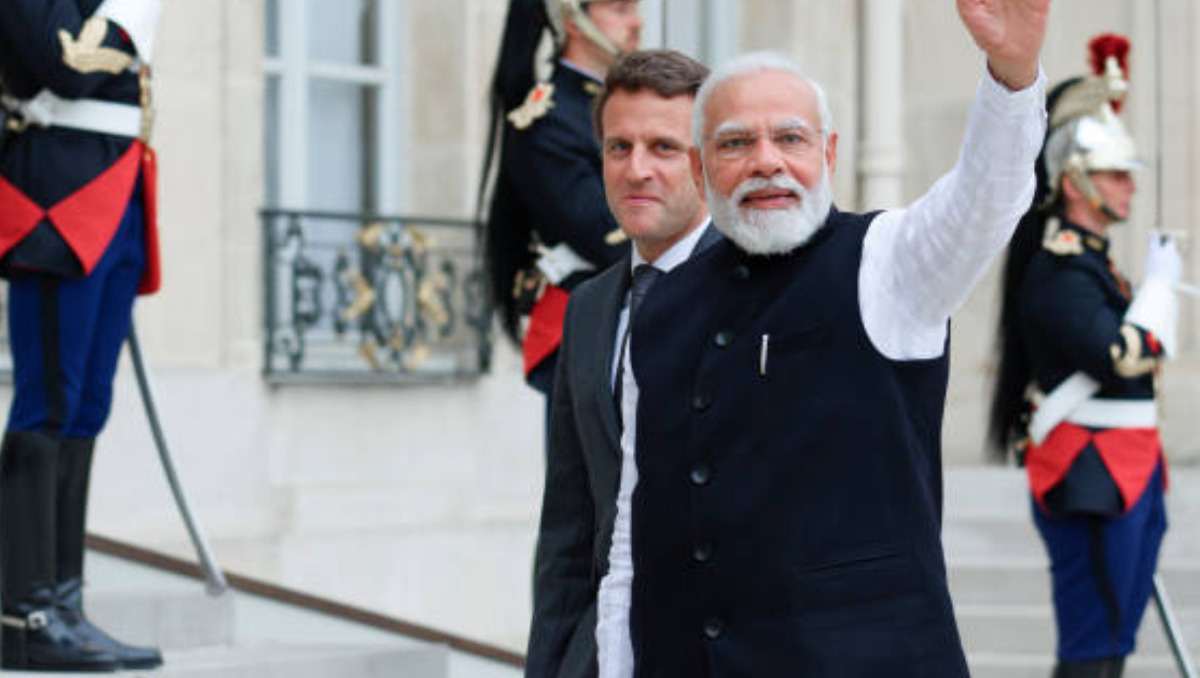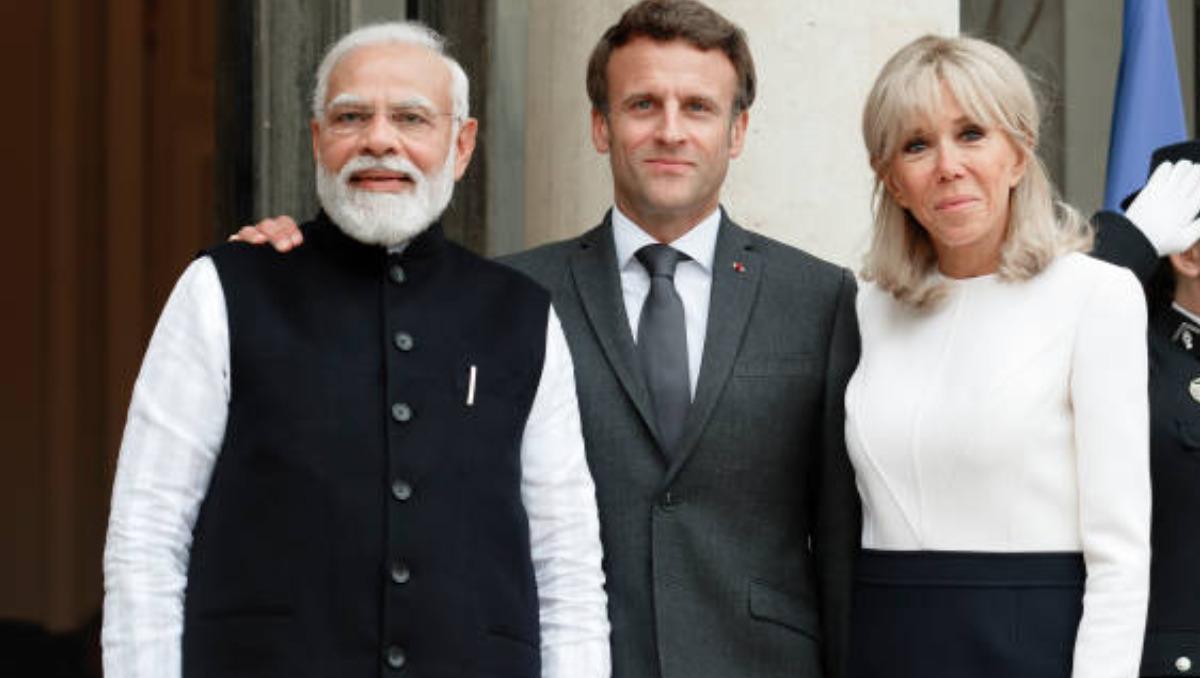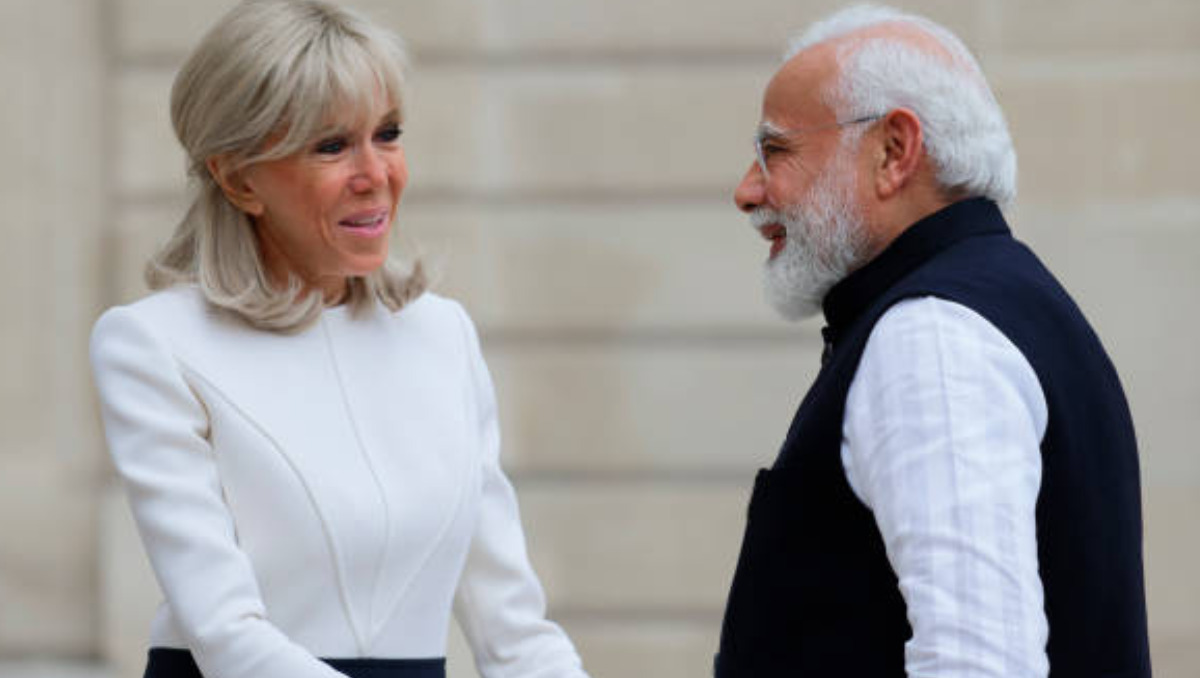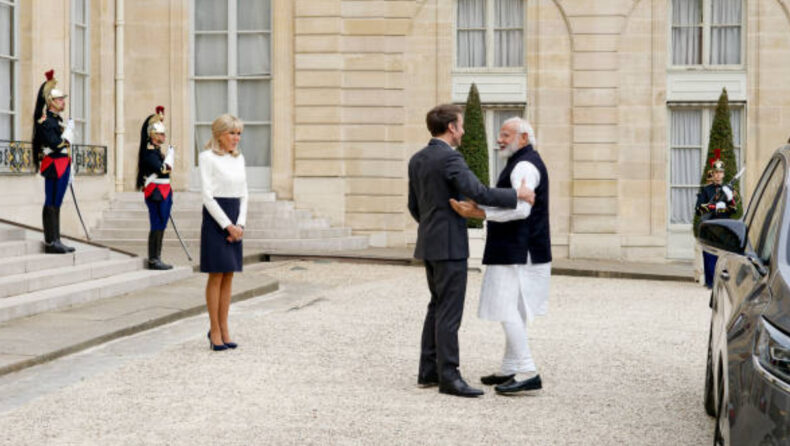Table of Contents
Prime Minister Narendra Modi is treated royally by French President Emmanuel Macron after being chosen as the guest of honour at this year’s Bastille Day military parade on July 14. But detractors fear that France is sending an incorrect message by ignoring rights breaches and democratic regress under Modi’s rule.

The Louvre’s cuisine of France: an art form
Only the third state visit of the Biden presidency, US President Joe Biden welcomed Modi on a state visit last month as part of “Operation seduce Narendra Modi,” according to a US-based analyst. A state banquet, a speech to a joint session of Congress, and the signing of significant defence agreements were all part of the visit.
Just three weeks later, France imitated Britain by choosing Modi as the special guest at this year’s Bastille Day military display on July 14.
A significant national holiday in France known as “la fête nationale” commemorates the victory of liberty and the democratic determination of the people.
An invitation to serve as the primary guest on Bastille Day is an honour rich in symbolic meaning in a nation that fought for universal human rights more than 200 years ago.

Macron is going all out for Modi’s two-day visit this year. Following the military parade on July 14, a special supper will be held at the majestic Louvre, the most visited museum in the world, with more than 200 guests.
According to the French presidential administration, the Indian prime minister would be given a rare opportunity to visit famous works of art. The two leaders may pose for pictures with Leonardo da Vinci’s La Gioconda, well known as the Mona Lisa, according to rumours in the Indian media.
From a snubbed diplomat to a respected guest
But even though Modi is praised all over the world, he is still plagued by the ghosts of 2002.
India: The Modi Question, a BBC documentary that examined Modi’s record as Gujarat’s chief minister during one of India’s worst communal riots, was released earlier this year. The two-part documentary looks into recurring claims that Modi’s state government incited the violence by ordering the police to remain silent as Muslim homes were attacked and inciting the Hindu mobs. Since the 1970s, Modi and the Hindu nationalist Bharatiya Janata Party (BJP) have refuted the accusations.
The BBC series drew an immediate response from the Indian government. Authorities forbade the documentary by using emergency legislation. The electricity was turned off when college students at a university in New Delhi organised a screening. Then, in what a rights group has called a pattern of legal harassment against independent media institutions, tax authorities in India searched the offices of the BBC.

Due to “serious violations of religious freedoms” as a result of the Gujarat riots, Modi was also subject to a US immigration restriction in 2005. The prohibition was only lifted when he took office as prime minister in May 2014. Following the riots, which saw the tragic deaths of three British Muslims in Gujarat, the UK imposed a diplomatic embargo that lasted for ten years.
The West has taken U-turns that have allowed Modi’s transition from snubbed diplomat to honoured guest at the table possible, ranging from boycotts and bans to state visits and prestige invitations.
Even if New Delhi increased its imports of cheap Russian oil while failing to denounce Russia’s invasion of Ukraine, the outreach continued. Biden and Macron can ignore the circumstances that have Sanjiv Bhatt and a long number of government opponents languishing in Indian prisons thanks to markets, geopolitics, defence deals, and Chinese expansionism.
Although realpolitik seems to have prevailed in Western capitals, the game of history’s victors and losers continues, which could have negative effects for nations that sweep values under the rug.
Comrades in arms
According to a joint statement posted on the website of the Élysée presidential palace, Modi’s invitation to the Bastille Day military parade commemorates the 25th anniversary of the France-India Strategic Partnership.
The France-India Strategic Partnership was established in 1998, the same year that India was subjected to US sanctions for carrying out nuclear testing, and has seen the two nations work together on defence, civil nuclear energy, and terrorist concerns.
The Indian army, navy, and air force will participate in the Bastille Day military parade on Friday with a number of 269 people. French Rafale fighter jets, which will also take part in the fly-past during the parade, will be featured in the Indian air force component.
During Modi’s visit, which will be his seventh to France and has already produced headline-grabbing agreements on arms procurement and bilateral trade, weapons are expected to take centre stage. Modi is anticipated to ink agreements this year to have the French government sell the Indian Navy three more Scorpene class submarines and 26 Rafale fighters.













